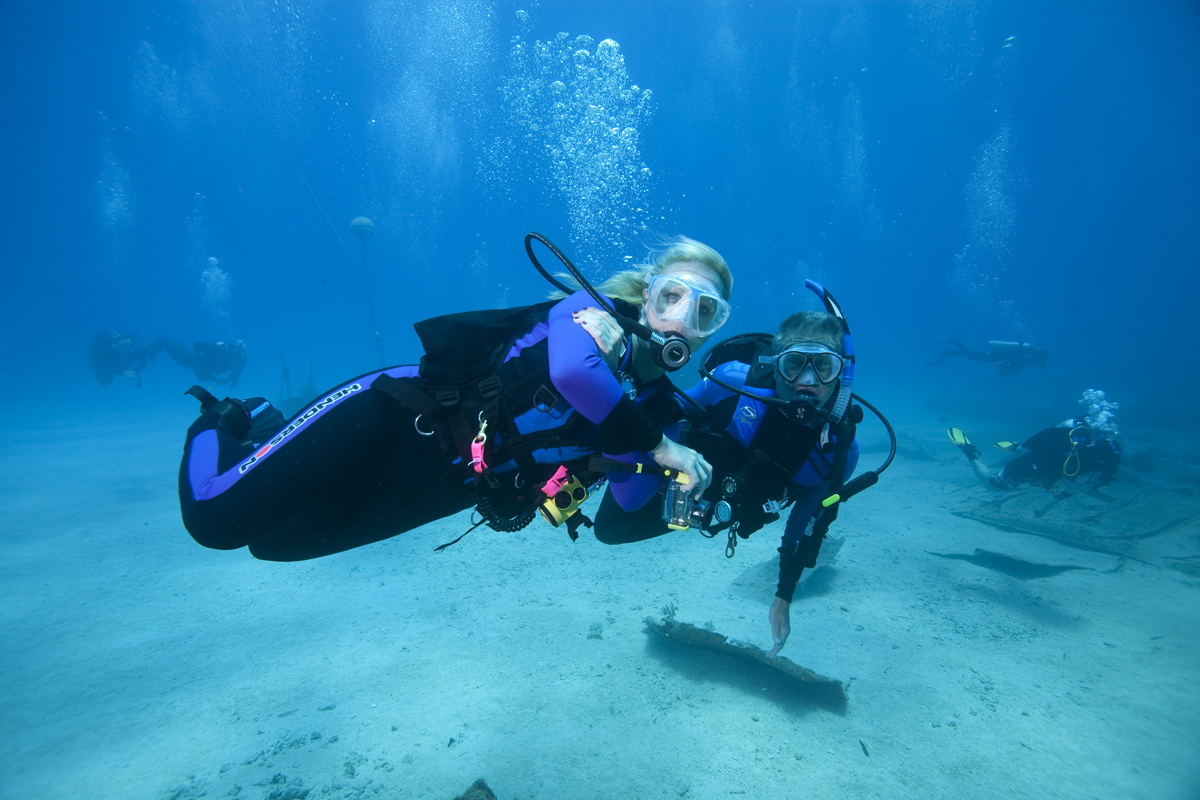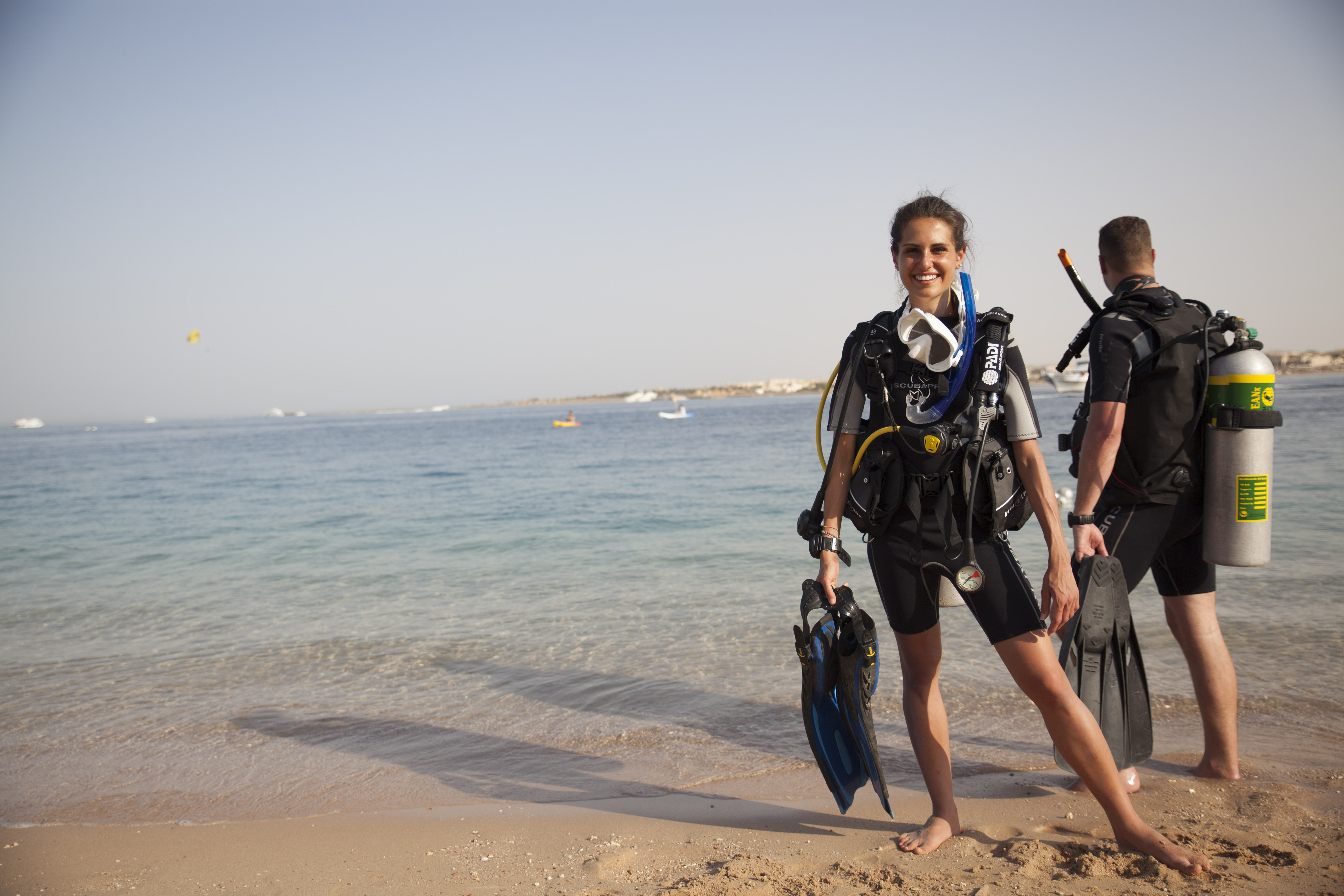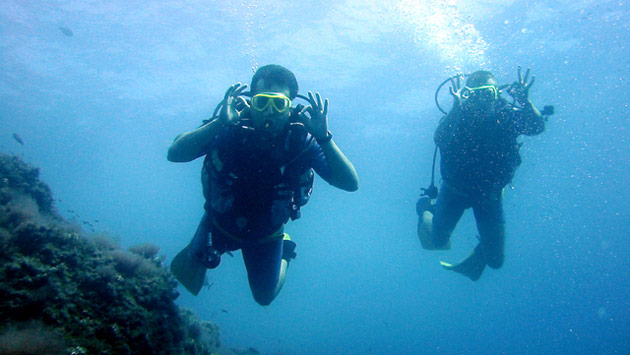Yes, scuba diving is a sport. It involves physical exertion, skill, and competition.
Scuba diving combines adventure and fitness. Divers explore underwater worlds, requiring strong swimming skills and stamina. It’s not just about floating beneath the waves. Divers must train, learn safety techniques, and often compete in underwater navigation or photography contests. Scuba diving can be both recreational and competitive.
Enthusiasts travel worldwide to dive in different water bodies. They experience diverse marine life and challenging conditions. This sport offers a unique way to stay active while enjoying the beauty of the ocean. Whether you’re a beginner or an experienced diver, scuba diving provides endless opportunities for excitement and discovery. So, is scuba diving a sport? Absolutely! Dive in and find out why.
Introduction To Scuba Diving
Scuba diving is an underwater activity that allows you to explore the wonders of the ocean. It involves using special equipment to breathe underwater. This exciting sport offers a unique way to experience marine life and underwater landscapes.
Brief History
The history of scuba diving dates back to ancient times. Early divers used hollow reeds to breathe while submerged. In the 16th century, inventors created diving bells. These allowed divers to stay underwater for longer periods. The term “SCUBA” stands for Self-Contained Underwater Breathing Apparatus. It was coined in the mid-20th century.
Evolution Over Time
Over the years, scuba diving has evolved significantly. In the early 20th century, the first modern diving suits were developed. These suits provided better protection and mobility. In the 1940s, Jacques Cousteau and Emile Gagnan invented the Aqua-Lung. This device made scuba diving more accessible to the public.
Today, scuba diving equipment is advanced and safe. Modern gear includes lightweight tanks, wetsuits, and advanced regulators. Training programs ensure divers are well-prepared and knowledgeable. Scuba diving has become a popular sport and recreational activity worldwide.
Physical Demands Of Scuba Diving
Scuba diving is not just about exploring the underwater world. It also requires physical strength and endurance. Many people wonder if scuba diving is a sport. To answer this, let’s explore the physical demands of scuba diving. This will help us understand the fitness level required and the muscle groups used during a dive.
Required Fitness Level
Scuba diving needs a certain level of fitness. Divers need to be able to swim and tread water. They also need to carry heavy gear. The gear can weigh up to 30 pounds. So, having good physical fitness is important.
Divers should be comfortable in the water. They need to have good stamina. This helps them manage long dives. It also helps in swimming against currents. A basic swimming test is often required before starting scuba diving lessons.
Key Muscle Groups Used
Scuba diving uses many muscle groups. Here are the key ones:
- Leg Muscles: Divers use their legs to swim and move underwater. Strong legs help in kicking efficiently.
- Core Muscles: The core helps in maintaining balance and stability. A strong core is essential for controlling buoyancy.
- Back Muscles: Carrying the heavy gear requires strong back muscles. It helps in preventing injuries.
Using these muscle groups helps divers stay safe and enjoy their dive. It also helps in reducing fatigue.
| Activity | Muscles Used |
|---|---|
| Swimming | Legs, Core |
| Carrying Gear | Back, Shoulders |
| Maintaining Buoyancy | Core, Legs |
Understanding the physical demands of scuba diving helps in preparing for a safe and enjoyable dive. It also highlights the fitness level and muscle groups involved in this activity.
Skills Required For Scuba Diving
Scuba diving is more than just an underwater adventure. It demands a set of skills that ensure safety and enjoyment. Whether you’re a beginner or an expert, mastering these skills is essential.
Training And Certification
Before you dive into the depths, you must undergo training and certification. This process equips you with the necessary knowledge and skills to handle underwater challenges.
| Certification Level | Description |
|---|---|
| Open Water Diver | Basic level, allows diving up to 18 meters. |
| Advanced Open Water Diver | Intermediate level, allows diving up to 30 meters. |
| Rescue Diver | Focuses on emergency handling and rescue skills. |
Certification involves both theoretical and practical lessons. You’ll learn about diving equipment, underwater navigation, and safety procedures. Practical training includes pool sessions and open water dives.
Essential Techniques
Scuba diving requires mastering several essential techniques to ensure safety and efficiency underwater.
- Buoyancy Control: Maintaining neutral buoyancy helps in conserving energy and avoiding damage to marine life.
- Breathing Techniques: Proper breathing reduces air consumption and helps in staying calm.
- Mask Clearing: Learning to clear a flooded mask is crucial for visibility and comfort.
- Equalizing Pressure: This technique prevents ear pain and injuries caused by pressure changes.
- Underwater Communication: Using hand signals to communicate with your dive buddy.
Practicing these techniques regularly will make you a proficient diver. Remember, each dive is a chance to improve your skills and enjoy the underwater world.

Credit: blog.padi.com
Competitive Scuba Diving
While many enjoy scuba diving as a recreational activity, it is also a recognized competitive sport. Competitive scuba diving tests skills like speed, precision, and endurance under water. Participants strive to achieve personal bests and set new records.
Types Of Competitions
Competitive scuba diving has various types of events. Each type challenges divers in unique ways.
- Underwater Navigation: Divers navigate an underwater course using a compass and map. Speed and accuracy are key.
- Obstacle Course: This event involves navigating through a series of underwater obstacles. Divers must be quick and precise.
- Photography Competitions: Divers capture the best underwater images. Creativity and technical skill are important.
- Deep Diving: This event tests how deep divers can go within a time limit. Safety is crucial.
Notable Events
Several events highlight the competitive scuba diving calendar. Here are some of the most significant ones:
| Event | Location | Description |
|---|---|---|
| CMAS World Championship | International | This event features top divers competing in various disciplines. It is organized by the World Underwater Federation (CMAS). |
| Underwater Photography Olympics | Various Locations | Divers from around the world compete to capture the best underwater images. Categories include macro, wide-angle, and more. |
| US National Underwater Sports Championships | USA | This event includes multiple underwater sports, such as obstacle courses and underwater hockey. |
These events not only showcase the divers’ skills but also promote the sport to a wider audience.
Scuba Diving As Recreation
Scuba diving offers an escape from the daily grind. It provides a unique underwater experience. Divers immerse themselves in a world of vibrant marine life and stunning coral reefs. Many people dive to relax and explore.
For some, the allure is the sense of adventure. Others enjoy the tranquility beneath the waves. Scuba diving can be both thrilling and soothing.
Popular Dive Destinations
The Maldives boast crystal-clear waters and diverse marine life. Australia’s Great Barrier Reef is a diver’s paradise with its colorful corals. The Red Sea offers warm waters and abundant sea creatures. Mexico’s Cenotes provide a unique cave diving experience. Each destination has its own charm.
Divers often seek out these locations for their beauty. They also offer opportunities to see rare species. Each dive site is different, making every dive a new adventure.
Leisure Vs. Sport
Scuba diving as leisure focuses on relaxation. Divers take their time and enjoy the sights. There is no rush, just a peaceful exploration. It’s about enjoying the journey.
As a sport, scuba diving requires skill and endurance. Competitive diving includes timed events and depth challenges. It demands physical fitness and mental toughness. Each dive pushes divers to their limits.
Mental Challenges In Scuba Diving
Scuba diving is more than just physical activity. It demands strong mental skills. Divers need to stay calm and think clearly underwater. The mental challenges make scuba diving unique and exciting.
Focus And Concentration
Focus and concentration are key in scuba diving. Divers must be aware of their surroundings. They need to monitor their air supply and depth. Distractions can lead to mistakes. Staying focused ensures safety and enjoyment.
Concentration helps in observing marine life. It also aids in navigating underwater. Losing focus can cause divers to lose their way. A clear mind leads to a successful dive.
Handling Underwater Stress
Underwater stress is common in scuba diving. Divers face various stressors. Cold water, strong currents, and limited visibility can cause anxiety. Managing stress is crucial for a safe dive.
Breathing techniques help in reducing stress. Slow, deep breaths calm the mind. Divers also need to trust their training and equipment. Confidence in skills reduces fear.
Partner communication is vital. Divers should signal their feelings to each other. This helps in managing stress together. Good communication ensures a smooth diving experience.
Health Benefits Of Scuba Diving
Scuba diving is more than just an underwater adventure. It offers many health benefits that can improve your life. From enhancing cardiovascular health to reducing stress, scuba diving helps in many ways. Let’s explore some of the key health benefits.
Cardiovascular Improvements
Scuba diving boosts your heart health. While diving, your body works harder. This increases your heart rate and strengthens your heart muscles. Swimming against the water’s resistance gives you a good cardio workout. Regular diving can lead to better circulation and lower blood pressure.
Stress Relief
Scuba diving helps reduce stress. The underwater world is peaceful and calming. This serene environment can lower your stress levels. Breathing slowly and deeply while diving relaxes your mind. It mimics meditation. This can lead to a sense of calm and well-being. Many divers find that their anxiety lessens after a dive.

Credit: blog.padi.com
The Debate: Sport Or Activity?
Scuba diving sparks a heated debate. Is it a sport or just an activity? Many divers argue both sides. Some say it is a sport. Others see it as a leisure activity.
Arguments For Sport
Supporters of scuba diving as a sport have strong points. It requires physical fitness. Divers must swim against currents. They carry heavy gear. This gear includes tanks and weights. Training and certifications are also needed. Divers learn safety and technical skills. Competitive diving events exist. These events challenge divers’ skills. They test speed, depth, and precision.
Counterarguments
On the flip side, some argue scuba diving is an activity. They see it as a relaxing pastime. Divers explore underwater worlds at a calm pace. They enjoy marine life and scenery. Physical exertion is minimal for some dives. No scoring or judges are involved. It lacks the traditional competitive element. The focus is on enjoyment and experience.

Credit: www.topendsports.com
Frequently Asked Questions
Is Scuba Diving Considered A Sport?
Yes, scuba diving is considered a sport. It requires physical fitness, training, and skill. Divers explore underwater environments and often compete in diving disciplines.
What Skills Do You Need For Scuba Diving?
Scuba diving requires swimming proficiency, buoyancy control, and underwater navigation skills. Divers must also know how to use diving equipment safely.
Is Scuba Diving Physically Demanding?
Scuba diving can be physically demanding. Divers need good cardiovascular health and strength to manage equipment and navigate underwater currents.
How Does One Start Scuba Diving?
To start scuba diving, you need to take a certification course. These courses teach basic diving skills, safety procedures, and equipment usage.
Conclusion
Scuba diving involves physical skills and mental focus. It challenges your body and mind. Many see it as more than a hobby. It’s an adventure sport that requires training. Safety and preparation are key. Divers enjoy exploring underwater worlds. They experience unique marine life.
The sense of freedom underwater is unmatched. So, is scuba diving a sport? Yes, it is. Embrace the thrill and dive in!



